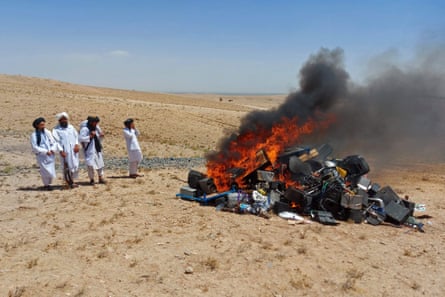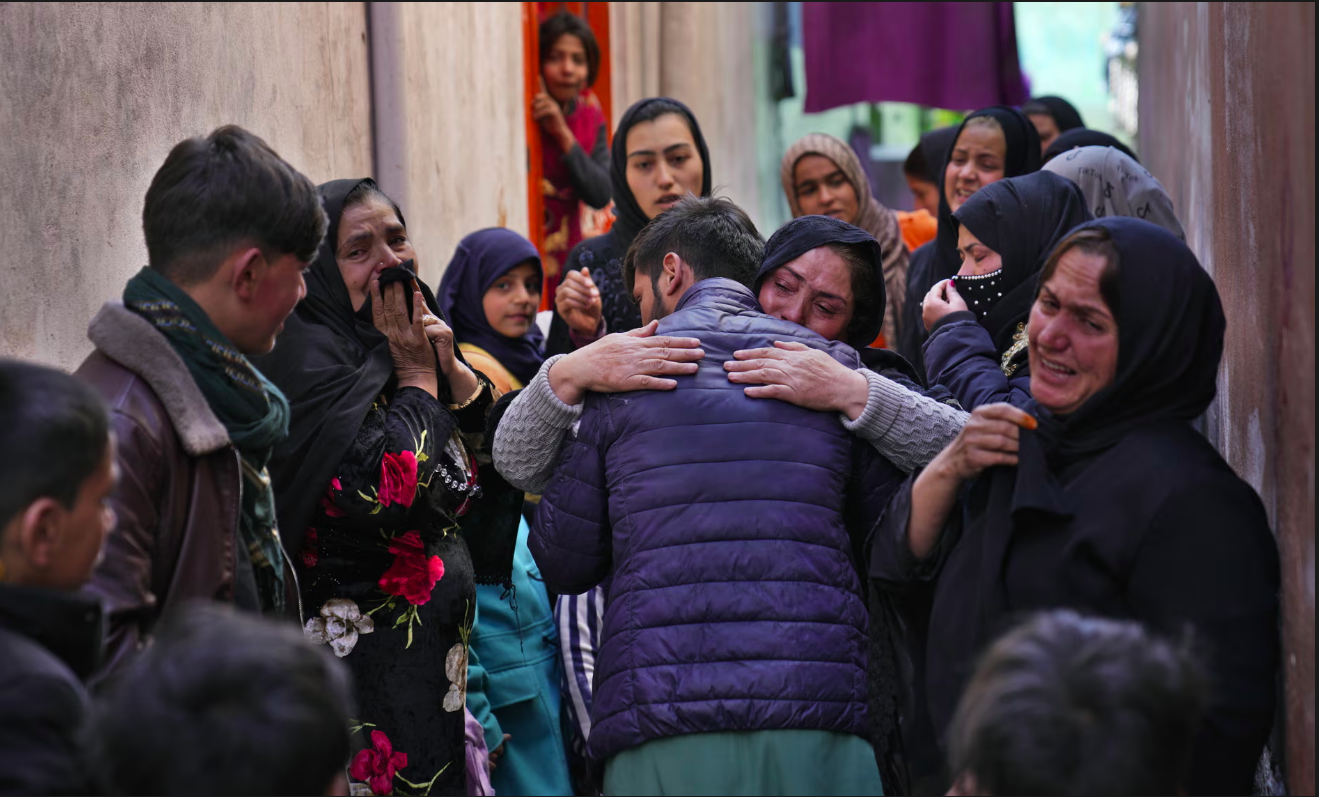hen the Taliban moved closer to Kabul in the early days of August 2021, a series of unusual advertisements flooded the shopping pages on Afghan social media. Musicians were putting their instruments and equipment – the tools of their trade – up for sale.
Many were being offered for a fraction of what they were worth. Yet, even in a country with an immense love for music, there were few buyers. “I knew from past experience what they would do with people like us [musicians], and our instruments. They have a dislike for our art and culture,” a 49-year-old singer from the north of Afghanistan who wished only to be identified as Farhan, told the Guardian.
Farhan was a sought-after musician in his town during festivals, weddings and social gatherings for his mesmerising renditions of folk songs played on a damboora, a traditional Afghan musical instrument. But when the insurgents marched closer to his city, he started receiving calls and social media messages from Taliban commanders accusing him of causing “moral corruption”.

“I knew they would not spare me, so I had to say farewell to my instruments and leave the country,” he says. Some musicians tried to sell their instruments, he adds, while others destroyed them rather than letting them fall into the hands of the Taliban. “I buried my instruments in the fields.”
It was foresight that saved Farhan’s life. Some of his colleagues, such as the folk singer Fawad Andarabi, were less fortunate, murdered by the Taliban just weeks after the group seized power.
Since taking over, the Taliban have imposed their rigid interpretation of Islam, restricting and even criminalising music and arts – some of the most integral aspects of Afghan culture.
In July, the Taliban’s ministry for promotion of virtue and prevention of vice shared photos of a bonfire of “illegal” musical instruments that had been seized.
While setting the equipment on fire, Aziz Rahman Muhajir, head of the vice and virtue department in Herat, once again reminded Afghans that the sale of musical instruments was a punishable offence.
When Farhan saw the images, he was heartbroken. “It felt as if they were burning parts of my body. My soul was on fire.”

“Of the many aspects of life affected by the war in Afghanistan, I would say art and culture are among the worst affected,” says Omaid Sharifi, co-founder of ArtLords, a collective that has worked to revive Afghan art and culture since 2014.
READ FULL STORY ON THE GUARDIAN
